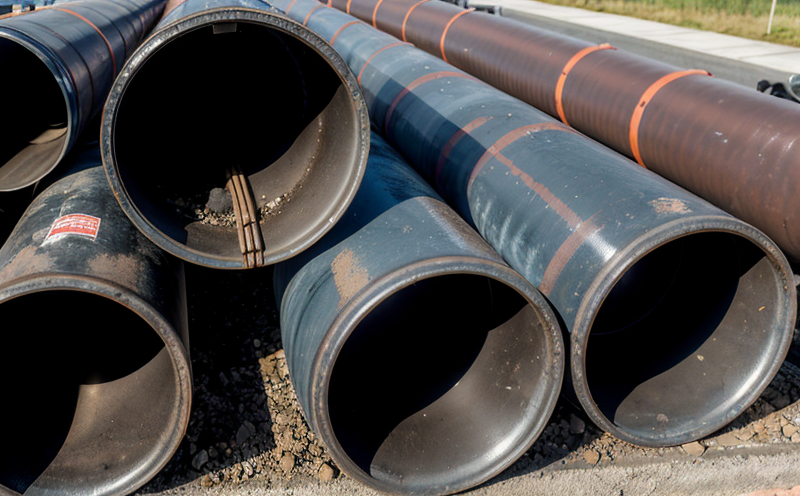DIN EN ISO 16422 Plastic Pipe Testing for Industrial Fluids
The DIN EN ISO 16422 standard specifies the requirements and test methods for determining the mechanical properties of thermoplastics used in plastic pipes intended to convey industrial fluids. This service ensures that plastic pipes meet stringent performance criteria, which is critical for industries relying on reliable fluid transport systems.
Thermoplastic materials are widely utilized in various applications due to their flexibility, durability, and cost-effectiveness. However, the nature of these materials requires rigorous testing to ensure they can withstand the harsh environments often encountered in industrial processes. The DIN EN ISO 16422 standard addresses this need by providing detailed guidelines on how to conduct mechanical tests that simulate real-world conditions.
Industries such as chemical processing, food and beverage manufacturing, pharmaceuticals, and water treatment rely heavily on plastic pipes for conveying fluids. Ensuring these pipes can handle high pressures, temperatures, and corrosive environments is paramount. This service plays a crucial role in validating the integrity of materials used in these critical systems.
The testing process involves several stages: specimen preparation, mechanical property determination, and reporting results. Specimen preparation ensures that samples are representative of the material to be tested. Mechanical property determination assesses key attributes like tensile strength, yield strength, elongation at break, flexural modulus, and impact resistance. These properties are evaluated under various conditions relevant to industrial use.
Accurate testing is essential for ensuring compliance with regulatory requirements and quality standards. The DIN EN ISO 16422 standard provides a robust framework that helps manufacturers and suppliers meet these demands. By adhering to this standard, laboratories like ours can provide reliable test results that instill confidence in the performance of plastic pipes.
The service also includes compliance with international standards such as ASTM D790-18 for tensile testing, ISO 527-1:2012 for mechanical properties, and EN ISO 148-1:2016 for thermal mechanical analysis. This comprehensive approach ensures that the test results are not only accurate but also widely accepted across different regions.
Our laboratory uses state-of-the-art equipment to perform these tests, including high-resolution testing machines capable of precise measurements. The use of advanced technology allows us to achieve consistent and repeatable results, which is crucial for industries that demand reliability and consistency in their supply chains.
Applied Standards
| Standard | Description |
|---|---|
| DIN EN ISO 16422-1:2019 | Plastic pipes and fittings for conveying industrial fluids – Part 1: General requirements and test methods |
| DIN EN ISO 527-1:2012 | Plastics – Determination of tensile properties – Part 1: Test conditions, specimen dimensions and tolerances |
| ASTM D790-18 | Determination of tensile properties of plastics |
| EN ISO 148-1:2016 | Plastics – Determination of flexural and compressive properties – Part 1: General principles |
Why Choose This Test
- Ensures compliance with international standards, enhancing the reliability of plastic pipes for industrial use.
- Precise mechanical property determination under various conditions relevant to real-world applications.
- Advanced testing equipment for consistent and repeatable results.
- Comprehensive reporting that includes all test parameters and their implications for material performance.
The DIN EN ISO 16422 plastic pipe testing service is essential for industries where fluid transport systems are critical. By choosing this test, manufacturers can ensure that their products meet the highest quality standards, thereby reducing potential risks associated with failures in industrial pipelines.
Environmental and Sustainability Contributions
- The use of plastic pipes reduces material waste compared to traditional metallic piping solutions.
- Polymer materials used are often lighter than metals, leading to reduced transportation costs and carbon emissions.
- Plastic pipes can be recycled at the end of their lifecycle, contributing positively to environmental sustainability.
DIN EN ISO 16422 plastic pipe testing supports these sustainability efforts by ensuring that materials used in industrial piping systems are reliable and long-lasting. This not only extends the service life of infrastructure but also minimizes the need for frequent replacements, further reducing the carbon footprint associated with manufacturing.





